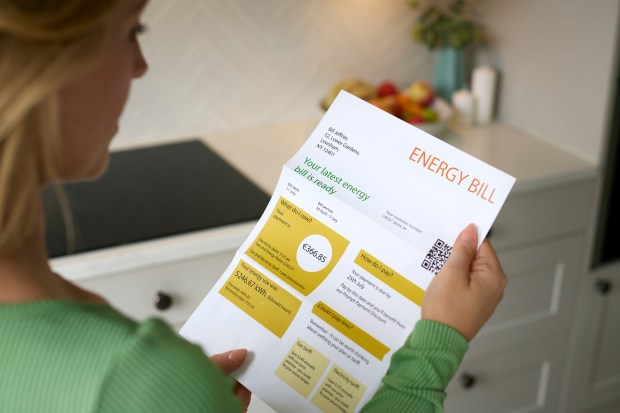MILLIONS of households will get a £150 rebate on their electricity bills this winter, thanks to changes to the Warm Home Discount scheme.
The scheme, aimed at helping low-income households, has expanded its eligibility in England and Wales by scrapping the “hard-to-heat” rule.
Previously, families in England and Wales needed to be on certain benefits and live in homes with poor energy efficiency ratings, such as D, E, F, or G, to qualify – unless they received the guarantee credit element of pension credit.
This meant some low-income families with more energy-efficient homes missed out last year.
Now, the removal of the “hard-to-heat” requirement ensures more people qualify automatically.
An additional 2.7million households, including 900,000 families with children, are expected to benefit from the £150 rebate, taking the total to six million eligible homes.
This change is set to make the scheme fairer and provide vital support during the colder months.
Those living in England and Wales do not need to apply for the scheme, but those living in Scotland do.
Between October and December, the government will issue letters to households that qualify for the scheme.
However, to be eligible for the discount, you need to have been claiming one of nine means-tested benefits on a specific date – August 24:
If you weren’t claiming any of these benefits on August 24, 2025, you won’t be eligible for the payment.
However, even if you aren’t receiving pension credit on the qualifying date, there’s a trick you can follow to ensure that you get the extra cash later.
This is because your eligibility for certain benefits can be backdated.
For example, successful pension credit claims can be backdated by three months.
Claims for Universal Credit can be backdated by one month.
Around 700,000 pensioners are eligible for pension credit but not claiming it.
What is pension credit and how do you apply?
PENSION credit tops up your weekly income to £227.10 if you are single or to £346.60 if you have a partner.
This is known as “guarantee credit”.
If your income is lower than this, you’re very likely to be eligible for the benefit.
However, if your income is slightly higher, you might still be eligible for pension credit if you have a disability, you care for someone, you have savings or you have housing costs.
You could get an extra £82.90 a week if you have a disability or claim any of the following:
- Attendance allowance
- The middle or highest rate from the care component of disability living allowance (DLA)
- The daily living component of personal independence payment (PIP)
- Armed forces independence payment
- The daily living component of adult disability payment (ADP) at the standard or enhanced rate.
You could get the “savings credit” part of pension credit if both of the following apply:
- You reached State Pension age before April 6, 2016
- You saved some money for retirement, for example, a personal or workplace pension
This part of pension credit is worth £17.30 for single people or £19.36 for couples.
Claims for pension credit also open doors to a number of freebies and discounts.
For example, pension credit claimants over 75 qualify for a free TV licence worth up to £174.50 a year.
Claims for the benefit also provide eligibility to £25 a week cold weather payments and the £150 warm home discount.
Applications for pension credit can be made on the government website or by ringing the pension credit claim line on 0800 99 1234.
What if I live in Scotland?
In Scotland there’s a “core group” that’ll receive an automatic payment and a “broader group” which has to apply for the scheme with their energy provider.
You’ll need to check with your energy supplier directly to see the eligibility requirements and details on how to apply.
The scheme will have more applicants than places, so make sure you apply with your energy supplier as soon as possible.
What energy bill help is available?

There’s a number of different ways to get help paying your energy bills if you’re struggling to get by.
If you fall into debt, you can always approach your supplier to see if they can put you on a repayment plan before putting you on a prepayment meter.
This involves paying off what you owe in instalments over a set period.
If your supplier offers you a repayment plan you don’t think you can afford, speak to them again to see if you can negotiate a better deal.
Several energy firms have schemes available to customers struggling to cover their bills.
But eligibility criteria vary depending on the supplier and the amount you can get depends on your financial circumstances.
For example, British Gas or Scottish Gas customers struggling to pay their energy bills can get grants worth up to £2,000.
British Gas also offers help via its British Gas Energy Trust and Individuals Family Fund.
You don’t need to be a British Gas customer to apply for the second fund.
EDF, E.ON, Octopus Energy and Scottish Power all offer grants to struggling customers too.
Thousands of vulnerable households are missing out on extra help and protections by not signing up to the Priority Services Register (PSR).
The service helps support vulnerable households, such as those who are elderly or ill.
Some of the perks include being given advance warning of blackouts, free gas safety checks and extra support if you’re struggling.
Get in touch with your energy firm to see if you can apply.












